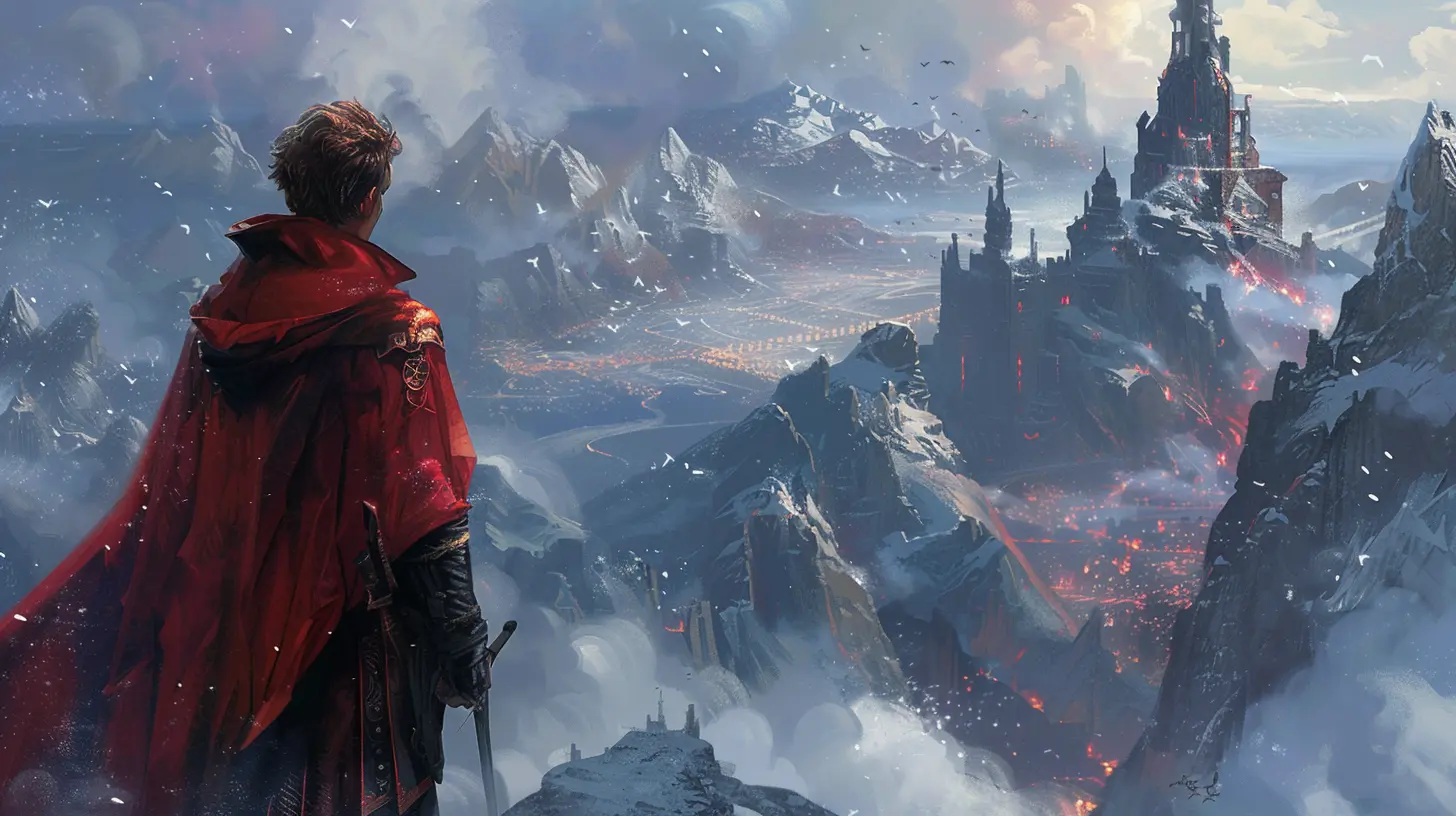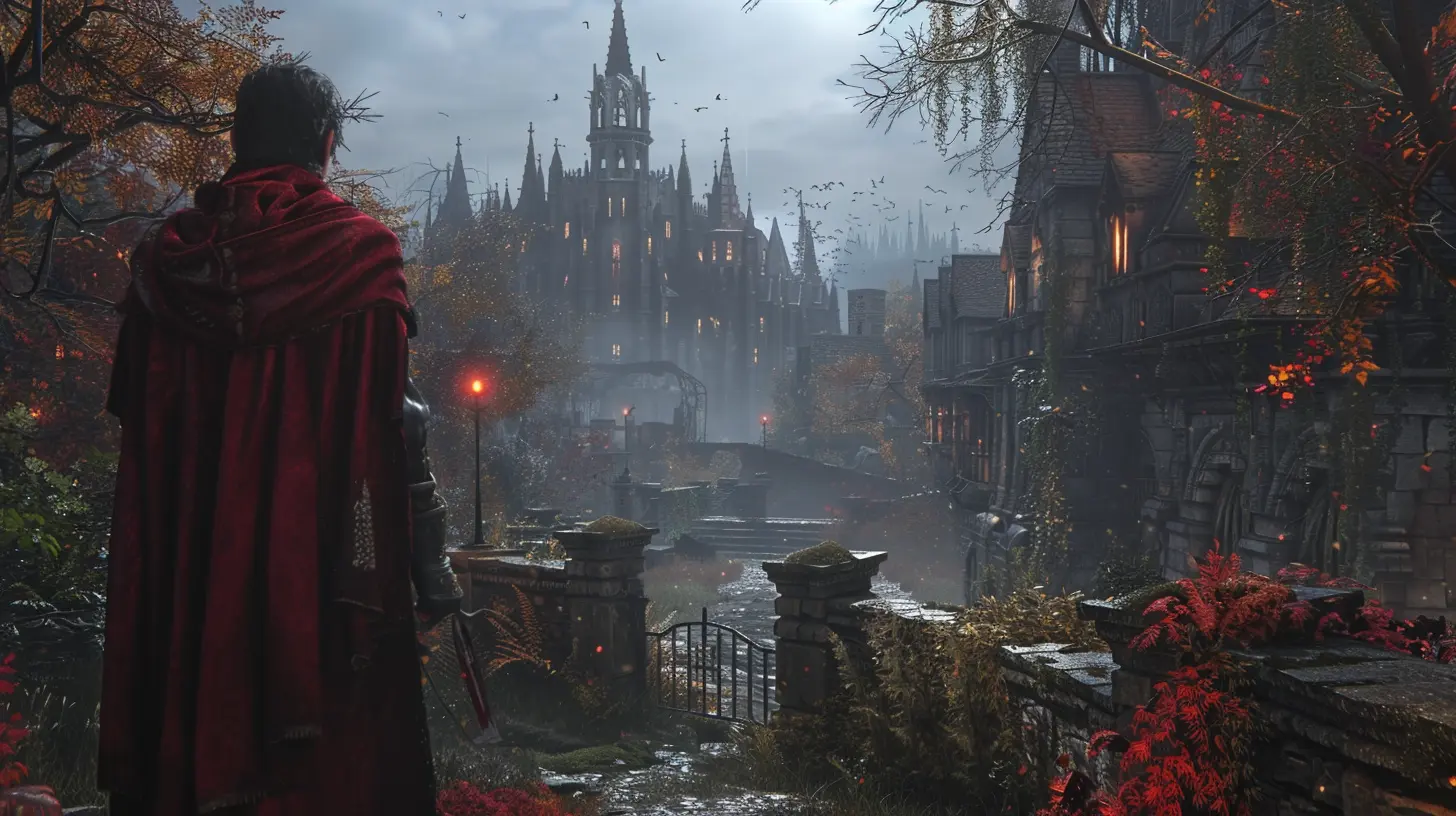Narrative-Driven Masterpieces: Where Story is the Star
25 June 2025
Let’s face it—gaming is no longer just about smashing buttons and chasing high scores. Sure, I love blowing things up as much as the next gamer, but there’s something magical about a game that pulls you in with its story. You know, those narrative-driven games that stick with you long after the credits roll. They’re like a great novel or a binge-worthy Netflix series, but interactive. In a digital world overflowing with flashy graphics and frantic gameplay, these gems remind us that sometimes story is the real MVP.
So, buckle up, because today I’m going to take you on a whirlwind journey through the world of narrative-driven masterpieces. These are the games where plot twists hit harder than a Dark Souls boss and characters feel more real than some of your best friends. Ready? Let’s dive in.
Why Storytelling Matters in Gaming
First off, let’s address the elephant in the room: Why does a good story even matter in a game? Isn’t gaming supposed to be, well, fun? Absolutely! But here’s the thing—stories provide a reason for that fun. A compelling narrative can transform mindless button-mashing into a deeply emotional experience. It’s the difference between eating a plain slice of bread and devouring a gourmet sandwich layered with textures and flavors.Games with exceptional storytelling make you feel. They make you laugh, cry, scream, or even question your life choices (looking at you, "The Last of Us"!). They connect us to the characters and the world, turning the experience into something memorable and, dare I say, profound.
What Makes a Game a Narrative-Driven Masterpiece?
Not every game with a story qualifies as a "narrative-driven masterpiece." No, no, no. That would be like calling instant ramen a fine dining experience. There are a few key ingredients that elevate a game to masterpiece status:1. Complex Characters
Flat, one-dimensional characters are so 8-bit era. The best narrative-driven games deliver characters with depth, flaws, and personalities that feel real. These are the characters you root for, cry over, or maybe even hate with a burning passion.Take "Red Dead Redemption 2" as an example. Arthur Morgan isn’t just a cowboy who rides around shooting things—he’s a man caught in the moral gray area of loyalty versus survival. You’re not just playing as Arthur; you become Arthur.
2. Emotional Weight
If a game doesn’t make you feel something—anything—then it’s missed the mark. Whether it’s the gut-wrenching grief of watching a beloved character die or the fist-pumping triumph of overcoming impossible odds, the emotional rollercoaster has to be there.If you’ve ever played "Life is Strange," you’ll know what I’m talking about. That game practically demands a dedicated tissue box. It grabs you by the heartstrings and doesn’t let go.
3. Immersive Worldbuilding
A great story needs a great setting. Think of it as the stage where all the drama unfolds. Without an immersive world, even the best-written story can fall flat. The world needs to feel alive, full of little details that make you want to explore every nook and cranny.Case in point: "The Witcher 3: Wild Hunt." The cities, forests, and swamps in that game aren’t just pretty visuals—they’re filled with lore, secrets, and people who feel like they have lives outside of your quest.
4. Choices and Consequences
The beauty of a game (unlike movies or books) is that you get to make decisions. Games that nail narrative-driven storytelling often give you choices that shape the world and determine the outcome. It’s like a "Choose Your Own Adventure" book on steroids.Games like "Mass Effect" excel here. Your decisions ripple across the entire trilogy, making you question every moral and tactical choice. Did you save the council? Did you punch that reporter? Don’t lie; we all punched the reporter.
The Titans of Narrative-Driven Games
Now that we’ve talked about the ingredients, let’s talk about the main courses. These are the games that took storytelling in gaming to stratospheric levels. If you haven’t played these yet, what are you even doing with your life?1. The Last of Us Series
This one’s an obvious pick, but come on—how could it not be? Naughty Dog crafted a masterpiece with "The Last of Us." It’s not just a story about surviving the apocalypse; it’s about love, loss, and the gray areas of morality. Joel and Ellie’s journey will rip your heart out and smash it into a million pieces, but you’ll thank them for it. And the sequel? An emotional gut-punch from start to finish.2. Red Dead Redemption 2
Picture this: a sprawling Wild West, morally complex characters, and a story so poignant it hurts. Rockstar Games didn’t just create a game here; they created a tragic opera set to the tune of gunshots and horse hooves. By the end, you'll be ugly crying and singing cowboy songs in the shower.3. Bioshock Infinite
Oh, "Bioshock Infinite," where do I even start? This game is a mind-bending blend of philosophy, politics, and quantum physics, wrapped in a narrative that keeps you guessing. Elizabeth is one of the most compelling AI companions ever, and that ending? Chef’s kiss.4. Undertale
Don’t let the pixel art fool you—this indie gem packs more emotional depth than most AAA titles. It’s a quirky, funny, heartwarming tale that also lets you decide whether to be a pacifist or a total monster. The way it remembers your choices and breaks the fourth wall is downright genius.5. God of War (2018)
Kratos went from Greek tragedy to Norse mythology, and the transition was flawless. This reboot didn’t just give us epic battles and jaw-dropping visuals; it gave us a deeply personal story about fatherhood, loss, and healing.
Why These Games Matter More Than Ever
Here’s the deal: in an era of microtransactions, loot boxes, and endless sequels, narrative-driven games are a breath of fresh air. They remind us of the creative potential of gaming as a medium. They’re proof that games can be more than just entertainment—they can be art.More importantly, they resonate with people. Whether you’re escaping real-world stress or looking for a story that makes you think, these games deliver in spades. They’re a testament to the power of storytelling and why it’ll always be the heart of any truly great game.
The Future of Narrative-Driven Games
So, what’s next for this genre? Well, with advancements in technology like AI and virtual reality, we’re poised to see even more immersive and emotionally charged narratives. Imagine stepping into a story where the characters react to your tone of voice or where the environment shifts based on your emotions. The possibilities are endless, and honestly? I’m so here for it.That said, at the core of it all will always be the storytelling. Because while shiny graphics and advanced mechanics are cool, they’ll never replace the feeling of a story well told.
Conclusion: Story Will Always Be the Star
Whether you’re a casual gamer or someone who spends hours dissecting every plot point, there’s no denying that storytelling is what pushes the boundaries of gaming. Games that prioritize narrative over all else invite us to experience new worlds, perspectives, and emotions. They blur the line between player and character, and in doing so, they create something truly unforgettable.So, next time you fire up a game, pay attention to the story. Dive into it. Let it consume you. Because when done right, these narrative-driven masterpieces remind us why we fell in love with gaming in the first place.
all images in this post were generated using AI tools
Category:
Game ReviewsAuthor:

Greyson McVeigh
Discussion
rate this article
1 comments
Audra McConkey
This article brilliantly highlights how narrative-driven games elevate storytelling in the medium, emphasizing character development and emotional engagement. By prioritizing plot, these masterpieces redefine player experiences, making storytelling quintessential to gaming's evolution.
July 4, 2025 at 4:50 PM

Greyson McVeigh
Thank you for your insightful comment! I'm glad you appreciated how narrative-driven games enhance storytelling and player engagement. It's fascinating to see how these elements shape the evolution of gaming.


